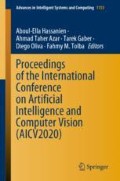Abstract
Economic development is a process of structural transformation not only involves productivity growth, but also improvement in the quality of life. In most developing countries, including Muslims, economic productivity remains low to foster growth and meet the challenges of the 21st century. The new economy, driven by the Fourth Industrial Revolution, underscores the importance of investment in human capital, knowledge creation and innovation so that to increase competitiveness and deepen integration in the global markets. Digitization facilitates connectivity and enhances the country capabilities to gain access to technology and skills needed for promoting innovation and diversifying output. Rethinking development requires adapting new strategies for development to support labor market flexibility and strengthen digital readiness.
With the exception of a few countries, economic productivity in the Muslim world remains low to foster rapid growth and catch up with the rest of the world. In Muslim countries, economic development is driven by traditional sectors, mainly agriculture, with little contribution of manufacturing production. The Fourth Industrial Revolution requires investment in digital technologies, artificial intelligence, nanotechnology, green energy and robotics to increase the country innovative capabilities and diversify output. The Muslim world should rethink development to develop strategies that strengthen connectivity, collaboration, technological learning and digitization. The aim of this paper is to highlight the importance of knowledge and technology for economic development in Muslim countries. The paper focuses on the challenges facing Muslim countries in the 21st century and benefit from the Fourth Industrial Revolution.
Access this chapter
Tax calculation will be finalised at checkout
Purchases are for personal use only
References
African Development Bank Group: African Economic Outlook (2014). https://www.un.org/en/africa/osaa/pdf/pubs/2014afrecooutlook-afdb.pdf
Al-Roubaie, A.: Building capacity for knowledge economies in the Arab world: the role of human capital. Int. J. Eng. Technol. 7(4.9), 55–62 (2018). www.sciencepubco.com/index.php/IJET
Al-Roubaie, A.: Knowledge absorption and economic diversification: the case of Bahrain. Int. J. Recent. Technol. Eng. (IJRTE) 8(IC2), 450–455 (2019a). https://www.ijrte.org/
Al-Roubaie, A.: Building capacity for digital development in the Arab world: the role of education. Int. J. Eng. Adv. Technol. (IJEAT) 8(5C), 1530–1537 (2019b). ISSN: 2249-8958. https://www.ijeat.org/
Asian Development Bank (ADB): Moving Toward Knowledge-Based Economies: Asian Experience (2007). https://www.adb.org/sites/default/files/publication/29699/knowledge-based-economies.pdf
Brookings Institution: A New Generation of Economic Development, 24 February 2015. https://www.brookings.edu/blog/the-avenue/2015/02/24/a-new-generation-of-economic-development/
Dahlman, C.J. (ed.): Finland as a Knowledge Economy. World Bank, Washington (2006)
Deloitte: Preparing Tomorrow’s Workforce for the Fourth Industrial Revolution (2019). https://www2.deloitte.com/global/en/pages/about-deloitte/articles/gx-preparing-tomorrow-workforce-for-the-fourth-industrial-revolution.html
Schwab, K.: Shaping the Future of the Fourth Industrial Revolution. Penguin Random House, New York (2018)
United Nations Conference on Trade and Development (UNCTAD): Information Economy Report (2017). https://unctad.org/en/PublicationsLibrary/ier2017_en.pdf
United Nations Conference on Trade and Development (UNCTAD): World Investment Report (2013). https://unctad.org/en/pages/PublicationWebflyer.aspx?publicationid=588
United Nations Conference on Trade and Development UNCTAD STAT. https://unctadstat.unctad.org/wds/TableViewer/tableView.aspx?ReportId=96740
United Nations Conference on Trade and Development (UNCTAD): Global Value Chains and Development (2013). https://unctad.org/en/PublicationsLibrary/diae2013d1_en.pdf
World Economic Forum: The Global Competitiveness Report 2017–2018. https://www.weforum.org/reports/the-global-competitiveness-report-2017-2018
Author information
Authors and Affiliations
Corresponding author
Editor information
Editors and Affiliations
Rights and permissions
Copyright information
© 2020 Springer Nature Switzerland AG
About this paper
Cite this paper
Al-Roubaie, A., Sarea, A.M. (2020). Rethinking Economic Development in Muslim Societies in the Context of the Fourth Industrial Revolution. In: Hassanien, AE., Azar, A., Gaber, T., Oliva, D., Tolba, F. (eds) Proceedings of the International Conference on Artificial Intelligence and Computer Vision (AICV2020). AICV 2020. Advances in Intelligent Systems and Computing, vol 1153. Springer, Cham. https://doi.org/10.1007/978-3-030-44289-7_64
Download citation
DOI: https://doi.org/10.1007/978-3-030-44289-7_64
Published:
Publisher Name: Springer, Cham
Print ISBN: 978-3-030-44288-0
Online ISBN: 978-3-030-44289-7
eBook Packages: Intelligent Technologies and RoboticsIntelligent Technologies and Robotics (R0)

